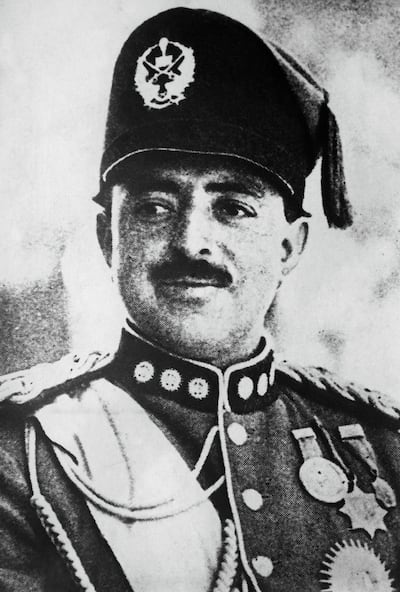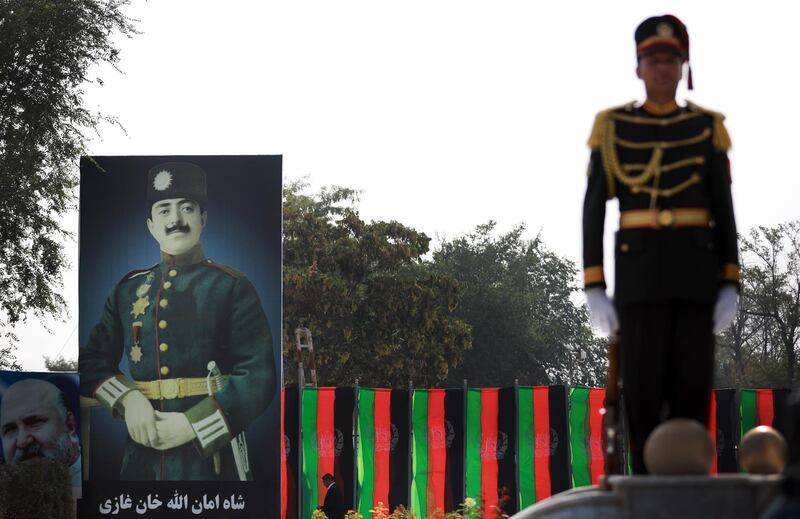As Afghanistan marked its 101st Independence Day on Tuesday, Afghans consider their freedom and sovereignty amid an alarming increase in bloodshed and prospective peace talks with the Taliban insurgency.
King Amanullah Khan declared freedom from British colonial rule in 1919, establishing modern-day Afghanistan. But its century long existence has been marred with coups, revolutions and civil wars, the latest of which is the 19-year conflict that began when the US forces overthrew the Taliban regime in 2001.
While the US administration signed a deal with the Taliban earlier this year, the insurgents continue to inflict violence resulting in high civilian casualties.
Against such a backdrop, celebrations of independence seem inappropriate to some Afghans.
“It is like we are free but in a prison,” said Nazar Mohammad, a small businessman from Kabul.
“I do not recall one day in the last forty years that I felt independent in my country. If we are free why did I and millions other have to seek refuge in other countries?”
The 48-year-old told The National his family was forced to flee the country in the 1990s due to horrific violence, only to return to Kabul under Taliban rule and suffer more brutal oppression.
Watch a Kabul rocket attack

“I remember how they forced their version of Islam under their rule. I remember women being beaten up for something as simple as going to hospital by themselves,” Mr Mohammad said, adding that he was concerned about the proposed peace talks with the group known for their cruelty and disregard for human rights.
“My heart burns when people say we are independent country.”
His concerns were echoed by Asila Naiebzada, 24-year-old resident of Aybak in Samangan province, which recently saw a Taliban attack which killed 10 people.
"In my entire life, I have only known two years of peace, and that was when I was studying in Uzbekistan," she told The National.
“Instead of celebrating independence, we are mourning for the loss of our loved ones. And lately, we have been attending a lot of funerals.”
Ms Naiebzada’s said her brother-in-law, who worked in the provincial courthouse, was kidnapped and murdered by local insurgent groups just last week.
“We are scared of leaving our houses. If we leave, we don’t know if we will return. I can confidently say there isn’t a home in this country that hasn’t lost a loved one to this country’s wars,” she said.

Hamida Fikrata, 25-year-old employee at the Ministry of Labour, Social Affairs, Martyrs and Disability echoed Ms Naiebzada’s sentiments.
“We cannot provide for the basic needs of our people, nor can we make important national decisions without the help or influence of foreigners.
“An independent state should not need the intervention of any country to decide on its internal affairs,” she said, alluding to the Taliban prisoner release.
But not everyone allowed the insecurity to deter their spirit of independence and national pride.
“We are a country with a unified flag, passport, strong diplomatic relations, and trade. We have a functioning government, we have a president, we have judicial system, a parliament. No can deny us this independence,” said Noor Gul Safi, a 35-year-old from Mazar-i-Sharif.
He acknowledged that progress on youth and women’s rights had been hampered by the challenges facing the country over the past 40 years, but said Afghanistan had always persisted.
“So far we have prevented our neighbouring and other countries from taking over Afghanistan. That is a reason to celebrate, and I congratulate my fellow Afghans,” he said.
But those like Ms Naiebzada aspire for more.
“For me freedom is the ability to go out to get groceries and return home safely. It is when kids in my family can go to school without the fear of being killed,” she said.
“I had such high hopes when I returned from Uzbekistan, I wanted to get involved in politics or have a government job. But I now live a life in fear waiting and wondering when the Taliban will attack us next, blow us up, kills us."






